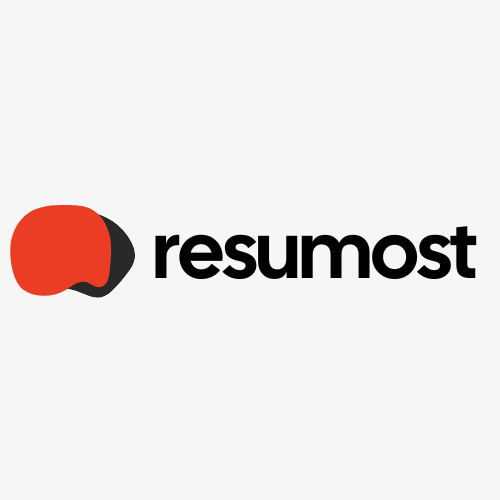Unlock Your Career Potential: 35+ Transferable Skills to Supercharge Your Resume

Feeling stuck or underqualified? Discover the powerhouse skills you already have that can land you your next job, even in a new industry. Learn how to identify and showcase them on your resume.
- What Are Transferable Skills?
- A Comprehensive List of Transferable Skills (with Examples)
- Communication and Interpersonal Skills
- Leadership and Management Skills
- Critical Thinking and Problem-Solving Skills
- Technical and Digital Skills
- Personal and Professional Attributes
- How to Weave Transferable Skills into Your Resume
- In Your Resume Summary or Objective
- In Your Work Experience Section (The STAR Method)
- In a Dedicated Skills Section
- You Have the Skills—Now Go Get the Job
Ever felt like you were starting from scratch when looking at a new job or industry? You scan the job description and think, "I've never done that before." It's a common feeling, but here's a secret: you're likely more qualified than you think. Your career superpower is your set of transferable skills.
Think of these skills as your professional passport—they are valuable abilities you've picked up in one job, school, or life experience that can travel with you to any new role. They are the universal language that all hiring managers understand and value.
What Exactly Are Transferable Skills?
Before we dive into the list, let's get crystal clear on what we're talking about. Transferable skills are:
- Acquired in one context (like your old job as a barista or a project manager).
- Directly applicable to another context (like a new job in marketing or software development).
- Highly valued across all industries because they form the foundation of a capable and effective employee.
Here are some of the most in-demand transferable skills to get you started:
- Problem-Solving
- Teamwork & Collaboration
- Written and Verbal Communication
- Leadership
- Time Management
- Adaptability
- Data Analysis
- Project Management
- Customer Service
- Critical Thinking
A Comprehensive List of Transferable Skills (with Examples)
Ready to take inventory of your own skill set? Here’s a detailed breakdown of skills, categorized to help you identify what you bring to the table.
Communication and Interpersonal Skills
These are the skills that determine how well you work with others. They are non-negotiable in almost every role.
- Active Listening: Truly hearing and understanding what others are saying.
- Written Communication: Crafting clear, concise emails, reports, and messages.
- Verbal Communication: Articulating ideas effectively in meetings and conversations.
- Public Speaking: Presenting information to groups with confidence.
- Negotiation: Finding common ground and reaching agreements.
- Conflict Resolution: Mediating disagreements to find a positive outcome.
- Teamwork: Collaborating effectively with colleagues to achieve a shared goal.
Leadership and Management Skills
You don't need a "Manager" title to have these skills. They're about taking initiative and guiding others.
- Project Management: Planning, executing, and closing projects on time and within budget.
- Delegation: Assigning tasks to the right people.
- Mentoring & Coaching: Guiding and developing junior team members.
- Decision-Making: Making timely, well-informed choices.
- Motivation: Inspiring and encouraging a team to do their best work.
- Strategic Planning: Setting long-term goals and creating a plan to achieve them.
Critical Thinking and Problem-Solving Skills
This is your ability to analyze information, think creatively, and overcome challenges.
- Research: Gathering and vetting information from various sources.
- Data Analysis: Interpreting numbers and data to find meaningful insights.
- Creativity: Thinking outside the box to develop innovative solutions.
- Troubleshooting: Identifying the root cause of a problem and fixing it.
- Logical Reasoning: Using a step-by-step approach to solve complex issues.
- Attention to Detail: Noticing small but important details that others might miss.
Technical and Digital Skills
While some technical skills are job-specific, many are now universally valuable.
- Microsoft Office Suite (Word, Excel, PowerPoint): A baseline expectation in most office jobs.
- Google Workspace (Docs, Sheets, Slides): The cloud-based equivalent.
- Social Media Management: Understanding how to use platforms for business.
- Data Entry: Fast and accurate input of information.
- CRM Software (e.g., Salesforce): Managing customer relationships and data.
- Basic HTML/CSS: A foundational understanding of web language.
- SEO/SEM Basics: Knowing the fundamentals of search engine optimization.
Personal and Professional Attributes
These are soft skills related to your work ethic and character.
- Adaptability: Thriving in changing environments.
- Time Management: Prioritizing tasks and meeting deadlines.
- Work Ethic: Being reliable, disciplined, and committed.
- Resilience: Bouncing back from setbacks.
- Organization: Keeping your work and schedule in order.
- Emotional Intelligence: Understanding and managing your own and others' emotions.
How to Weave Transferable Skills into Your Resume
Identifying your skills is half the battle. Now, you need to showcase them so a hiring manager can't miss them. Here’s how.
In Your Resume Summary or Objective
Start strong by including 2-3 of your top transferable skills in the summary at the top of your resume.
- Example: "Adaptable and results-oriented professional with over 5 years of experience in project management and strategic planning. Proven ability to lead cross-functional teams and analyze complex data to drive business growth."
In Your Work Experience Section (The STAR Method)
Don't just list your skills—prove them with examples. Use the STAR method to describe your accomplishments:
- Situation: Briefly describe the context.
- Task: What was your goal or responsibility?
- Action: What specific steps did you take? (This is where you name the skill).
- Result: What was the quantifiable outcome?
- Example: "Instead of saying 'Good communication skills,' say: 'Communicated with a dissatisfied client to actively listen to their concerns, negotiated a new service plan, and retained their $15,000 account.'"
In a Dedicated Skills Section
Create a section titled "Skills" or "Core Competencies" to list your most relevant abilities. This is a great place for both hard and soft skills. Putting this all together can feel overwhelming, but a well-designed template can make it much easier. Tools like resumost.com offer professionally structured templates that have dedicated sections for your skills, helping you present them in a clear and impactful way.
You Have the Skills—Now Go Get the Job
Your career history has equipped you with a treasure trove of valuable, transferable skills. They are proof of your ability to learn, adapt, and succeed. The key is to recognize them in your own experience and articulate them clearly to potential employers.
Take a few minutes to brainstorm all the things you’ve done—in jobs, volunteer work, or even personal projects. You'll be surprised at how many of these powerful skills you already possess. Now, update that resume in Resumost and go after the role you truly deserve.
© 2026 Resumost.
We love that you're reading our work! Please note that this content is our own. If you'd like to share or re-post it, please reach out to us for permission first. Unauthorized scraping of this site is not permitted.

The Resumost Team
Resumost instantly creates a compelling, professional letter based on your newly tailored resume and the specific job you're targeting.
